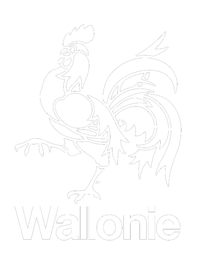Obtaining access to the undertaker profession
Are you thinking of starting a business as an undertaker? Or are you planning to add this service to your existing business? In this case, you need to prove that you have the skills to start up such a business. If you don't have a diploma or experience in this field, you can obtain a certificate by sitting the central jury exam.

Which activities require professional skills as an undertaker?
By definition, this includes carrying out one or more of the following activities relating to human remains:
- Displaying human remains and performing funeral grooming and care to preserve the body;
- Handle the transportation of human remains;
- Organise, perform and handle funeral ceremonies up to the place of burial or cremation, in accordance with local, religious and philosophical customs and the wishes of the deceased or the family.
If in doubt, contact a Business Counter. They can advise you on your personal situation.
How can I prove my skills?
Skills can be proven in two ways:
- With an educational or training diploma;
- With 2 years' full-time or 3 years' part-time professional experience within the last 15 years.
If you don't have either, you can obtain a certificate by sitting the exam for professional undertaker skills (20307) before the Central Jury.
Frequently asked questions about access to the profession
How do I know if my diploma grants me access to a profession?
A database of diplomas, degrees and certificates from all over the world helps you determine whether your qualifications meet entrepreneurial requirements. You can look up your diploma to find out which activities it gives you access to. If in doubt, contact a business counter. The Central Jury Service is not able to validate your qualifications.
Other than the company manager, who else can bring entrepreneurial skills to the business?
For a self-employed person (natural person), this person can be:
- A spouse;
- A legal cohabitant;
- A partner who has been cohabiting with the individual for at least 6 months;
- A self-employed assistant, parent or relative up to the third degree;
- An employee with a permanent employment contract.
For a business (legal entity), this person can be:
- The management body (e.g.: a manager of a limited liability company or a managing director of a public limited company);
- A company director (e.g.: an active partner in a limited liability company or a director of a public limited company);
- An employee with a permanent employment contract.
If in doubt, contact a Business Counter. They'll be able to tell you if you have the required skills for your activity.
What skills are tested on the exam? What content does the exam cover?
Your knowledge of materials, such as coffins, upholstery, funeral decorations and cemetery items, their models and storage;
Your knowledge of legislation and regulations relating to:
- Cemeteries, locations, identification and registration of graves, and plots;
- Burial, exhumation and cremation: formalities and documents, possible intervention or information from the police, judicial intervention or authorisation, ministerial passes and tax provisions;
- The transportation of human remains;
- Civil status in connection with the death;
- Professional hygiene;
- Funeral grooming;
Your basic knowledge of the law of succession, services of recognised religions, protocol for specific services, and honours;
Your ability to:
- Organise the funeral, taking into account the agreement of the family and religious authorities, the necessary ceremonial, liturgy and decoration;
- Write obituary notices;
- Take the necessary measures for the proper preservation of human remains;
- Decorate the death chamber;
-
Perform the burial, seal body orifices, put the body in a coffin and take safety measures.
How does the exam work?
The exam is a written questionnaire.
Any questions? Any problems?
info.jurycentral.dgo6@spw.wallonie.be
Office hours:
Monday: 2 – 4pm
Tuesday: 2 – 4pm
Wednesday: 9am – 12pm
Friday: 9am – 12pm081/33.40.00
Our offices are located at:
Boulevard Cauchy 43
5000 NAMUR
Are you looking for other solutions for your project?

Receive personalised advice and quickly find the answers to your questions. Find the help you need on 1890.be.
Discover other solutionsOther state aid

Innovation, training, exports, consultancy... Take a look at all the state aid available to Walloon companies.
To the Midas database